|
Books Should Be Free Loyal Books Free Public Domain Audiobooks & eBook Downloads |
|
|
Books Should Be Free Loyal Books Free Public Domain Audiobooks & eBook Downloads |
|
Biographies |
|---|
|
Book type:
Sort by:
View by:
|
By: Mary Harris Jones (1830 or 1837-1930) | |
|---|---|
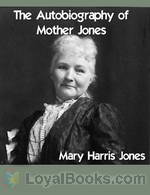 The Autobiography of Mother Jones
The Autobiography of Mother Jones
Mother Jones (Mary Harris Jones) was a legendary labor organizer. She was a founding member of the International Workers of the World (the IWW, or the Wobblies), and was active in the United Mine Workers and the Socialist Party of America. | |
By: Nat Love (1854-1921) | |
|---|---|
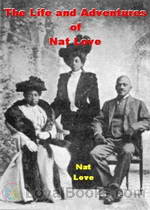 The Life and Adventures of Nat Love, Also Known As Deadwood Dick
The Life and Adventures of Nat Love, Also Known As Deadwood Dick
Nat Love was born a slave, emancipated into abject poverty, grew up riding the range as a cowboy and spent his maturity riding the rails as a Pullman Porter. For me, the most amazing thing about him is that despite the circumstances of his life, which included being owned like a farm animal solely because of the color of his skin and spending later decades living and working as an equal with white coworkers, he was an unrepentant racist! Convinced that the only good Indian was a dead one, and that... | |
By: Frank Lewis Dyer and Thomas Commerford Martin | |
|---|---|
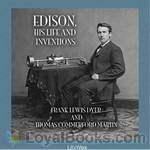 Edison, His Life and Inventions
Edison, His Life and Inventions
One of the most prolific and multi-talented geniuses the world has ever seen, Thomas Alva Edison's life is indeed an inspiration for each new generation. Today we live in a world that would not have been possible if not for several of his important inventions – the electric light bulb, the motion picture camera, electric power distribution, the phonograph, and a host of other things that we take for granted today. In fact, he still holds the world record for the maximum number of patents, numbering 1093 in all! Edison – His Life and Inventions by Frank Lewis Dyer and Thomas Commerford Martin, published in 1910 was in fact a biography commissioned by Edison himself... | |
By: Olaudah Equiano (1745-1797) | |
|---|---|
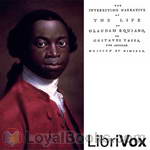 The Interesting Narrative of the Life of Olaudah Equiano, Or Gustavus Vassa, The African
The Interesting Narrative of the Life of Olaudah Equiano, Or Gustavus Vassa, The African
The Interesting Narrative of the Life of Olaudah Equiano, written in 1789, is the autobiography of Olaudah Equiano. It discusses his time spent in slavery, serving primarily on galleys, documents his attempts at becoming an independent man through his study of the Bible, and his eventual success in gaining his own freedom and in business thereafter. The book contains an interesting discussion of slavery in West Africa and illustrates how the experience differs from the dehumanising slavery of the Americas... | |
By: Henry Fielding (1707-1754) | |
|---|---|
 Journal of a Voyage to Lisbon
Journal of a Voyage to Lisbon
Sailing voyage from England to Portugal in the mid Eighteenth Century, by one of the premier humorists, satirists, novelists and playwrights of his age. It was to be his last work, as his failing health proved unable to persevere much longer after the voyage. | |
By: Thomas de Quincey (1785-1859) | |
|---|---|
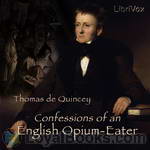 Confessions of an English Opium-Eater
Confessions of an English Opium-Eater
“Thou hast the keys of Paradise, O just, subtle, and mighty Opium!” Though apparently presenting the reader with a collage of poignant memories, temporal digressions and random anecdotes, the Confessions is a work of immense sophistication and certainly one of the most impressive and influential of all autobiographies. The work is of great appeal to the contemporary reader, displaying a nervous (postmodern?) self-awareness, a spiralling obsession with the enigmas of its own composition and significance... | |
By: Catharine Parr Traill (1802-1899) | |
|---|---|
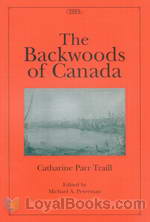 The Backwoods of Canada
The Backwoods of Canada
The writer is as earnest in recommending ladies who belong to the higher class of settlers to cultivate all the mental resources of a superior education, as she is to induce them to discard all irrational and artificial wants and mere useless pursuits. She would willingly direct their attention to the natural history and botany of this new country, in which they will find a never-failing source of amusement and instruction, at once enlightening and elevating the mind, and serving to fill up the void left by the absence of those lighter feminine accomplishments, the practice of which are necessarily superseded by imperative domestic duties... | |
By: James Boswell (1740-1795) | |
|---|---|
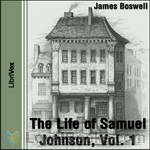 The Life of Samuel Johnson
The Life of Samuel Johnson
Boswell’s Life of Samuel Johnson is widely considered to be the greatest English-language biography ever written. It was revolutionary in its efforts to represent Johnson as he was, celebrating his flaws as well as his genius, and in Boswell’s decision to represent Johnson primarily by quoting his writings and relating personal anecdotes rather than relying on matters of public record. From the time of its publication till now, The Life of Johnson has been one of the most popular and influential books ever written. | |
By: William Dean Howells (1837-1920) | |
|---|---|
 My Mark Twain
My Mark Twain
William Dean Howells (1837-1920) became fast friends with Mark Twain from the moment in 1869 when Twain strode into the office of The Atlantic Monthly in Boston to thank Howells, then its assistant editor, for his favorable review of Innocents Abroad. When Howells became editor a few years later, The Atlantic Monthly began serializing many of Twain’s works, among them his non-fiction masterpiece, Life on the Mississippi. In My Mark Twain, Howells pens a literary memoir that includes such fascinating scenes as their meetings with former president Ulysses Grant who was then writing the classic autobiography that Twain would underwrite in the largest publishing deal until that time... | |
By: Friedrich Nietzsche (1844-1900) | |
|---|---|
 Case of Wagner / Nietzsche Contra Wagner / Selected Aphorisms
Case of Wagner / Nietzsche Contra Wagner / Selected Aphorisms
A collection of three of Nietzsche's writings concerning the music of Wagner. In particular, he relates Wagner's music as degenerate, unrefined and unintelligent and relates it to a gradually degenerating German culture and society. The translator provides a detailed introduction. | |
By: Richard Jefferies (1848-1887) | |
|---|---|
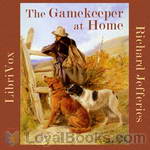 The Gamekeeper at Home
The Gamekeeper at Home
Richard Jefferies (1848 – 1887) was born and spent his childhood on a farm at Coate,Wiltshire. He joined the ‘Wiltshire and Gloucestershire Standard’ in 1868 and also started to write articles and pamphlets on various agricultural issues and local history topics. He is best known for his depiction of English rural life in essays, books of natural history, and novels. This classic of English nature writing gives an idea of the life of a gamekeeper in southern England in the second half of the nineteenth century. | |
By: Giacomo Casanova (1725-1798) | |
|---|---|
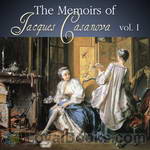 The Memoirs of Jacques Casanova
The Memoirs of Jacques Casanova
This is the first of five volumes. – Giacomo Casanova (1725 in Venice – 1798 in Dux, Bohemia, now Duchcov, Czech Republic) was a famous Venetian adventurer, writer, and womanizer. He used charm, guile, threats, intimidation, and aggression, when necessary, to conquer women, sometimes leaving behind children or debt. In his autobiography Histoire de ma vie (Story of My Life), regarded as one of the most authentic sources of the customs and norms of European social life during the 18th century, he mentions 122 women with whom he had sex... | |
By: Peter Abelard (1079-1142) | |
|---|---|
 The Story of My Misfortunes
The Story of My Misfortunes
Autobiographies from remote historical periods can be especially fascinating. Modes of self-presentation vary greatly across the centuries, as of course does the very concept of Self. Peter Abelard, the medieval philosopher and composer, here gives a concise but vivid survey of his notoriously calamitous life. The work is couched in the form of a letter to an afflicted friend. Abelard’s abrasively competitive, often arrogant personality emerges at once in the brief Foreword, where he informs his correspondent: “(I)n comparing your sorrows with mine, you may discover that yours are in truth nought.. and so shall you come to bear them the more easily.” | |
By: Princess Der Ling | |
|---|---|
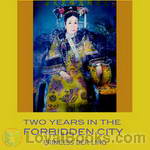 Two Years in the Forbidden City
Two Years in the Forbidden City
THE author of the following narrative has peculiar qualifications for her task. She is a daughter of Lord Yu Keng, a member of the Manchu White Banner Corps, and one of the most advanced and progressive Chinese officials of his generation. she became First Lady-in-Waiting to the Empress Dowager, and while serving at the Court in that capacity she received the impressions which provide the subject-matter of this book. Her opportunity to observe and estimate the characteristics of the remarkable woman who ruled China for so long was unique, and her narrative throws a new light on one of the most extraordinary personalities of modern times... | |
By: Gaius Suetonius Tranquillus (c75 - c160 AD) | |
|---|---|
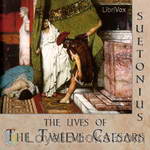 The Lives of the Twelve Caesars
The Lives of the Twelve Caesars
The Twelve Caesars is a set of twelve biographies of Julius Caesar and the first 11 emperors of the Roman Empire. The work was written in 121 during the reign of the emperor Hadrian, while Suetonius was Hadrian’s personal secretary. On the Life of the Caesars concentrates on the acts and personalities of the Julio-Claudians and their immediate successors. Together with Tacitus’ Annals, this work is a major source for the historical details in Robert Graves’ novels “I Claudius” and “Claudius the God”. | |
By: Thomas Carlyle | |
|---|---|
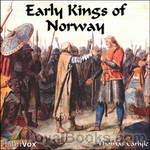 Early Kings of Norway
Early Kings of Norway
“The Icelanders, in their long winter, had a great habit of writing; and were, and still are, excellent in penmanship. It is to this fact, that any little history there is of the Norse Kings and their old tragedies, crimes and heroisms, is almost all due. The Icelanders, it seems, not only made beautiful letters on their paper or parchment, but were laudably observant and desirous of accuracy; and have left us such a collection of narratives (Sagas, literally “Says”) as, for quantity and quality, is unexampled among rude nations... | |
By: Leander Stillwell (1843-1934) | |
|---|---|
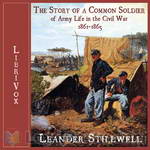 The Story of a Common Soldier of Army Life in the Civil War, 1861-1865
The Story of a Common Soldier of Army Life in the Civil War, 1861-1865
Leander Stillwell was an 18-year-old Illinois farm boy, living with his family in a log cabin, when the U.S. Civil War broke out. Stillwell felt a duty “to help save the Nation;” but, as with many other young men, his Patriotism was tinged with bravura: “the idea of staying at home and turning over senseless clods on the farm with the cannon thundering so close at hand . . . was simply intolerable.” Stillwell volunteered for the 61st Illinois Infantry in January 1861. His youthful enthusiasm for the soldier’s life was soon tempered at Shiloh, where he first “saw a gun fired in anger,” and “saw a man die a violent death... | |
By: Thomas Wentworth Higginson | |
|---|---|
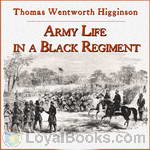 Army Life in a Black Regiment
Army Life in a Black Regiment
These pages record some of the adventures of the First South Carolina Volunteers, the first slave regiment mustered into the service of the United States during the late civil war. It was, indeed, the first colored regiment of any kind so mustered, except a portion of the troops raised by Major-General Butler at New Orleans. These scarcely belonged to the same class, however, being recruited from the free colored population of that city, a comparatively self-reliant and educated race. (From the text) | |
By: Booker T. Washington (1856-1915) | |
|---|---|
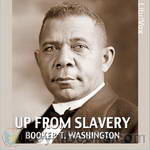 Up From Slavery
Up From Slavery
Up From Slavery is the 1901 autobiography of Booker T. Washington detailing his slow and steady rise from a slave child during the Civil War, to the difficulties and obstacles he overcame to get an education at the new Hampton University, to his work establishing vocational schools—most notably the Tuskegee Institute in Alabama—to help black people and other disadvantaged minorities learn useful, marketable skills and work to pull themselves, as a race, up by the bootstraps. He reflects on the generosity of both teachers and philanthropists who helped in educating blacks and native Americans... | |
By: James Edward Austen-Leigh (1798-1874) | |
|---|---|
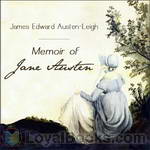 Memoir of Jane Austen
Memoir of Jane Austen
“The Memoir of my Aunt, Jane Austen, has been received with more favour than I had ventured to expect. The notices taken of it in the periodical press, as well as letters addressed to me by many with whom I am not personally acquainted, show that an unabated interest is still taken in every particular that can be told about her. I am thus encouraged not only to offer a Second Edition of the Memoir, but also to enlarge it with some additional matter which I might have scrupled to intrude on the public if they had not thus seemed to call for it... | |
By: John Burroughs (1837-1921) | |
|---|---|
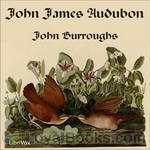 John James Audubon
John James Audubon
Audubon’s life naturally divides itself into three periods: his youth, which was on the whole a gay and happy one, and which lasted till the time of his marriage at the age of twenty-eight; his business career which followed, lasting ten or more years, and consisting mainly in getting rid of the fortune his father had left him; and his career as an ornithologist which, though attended with great hardships and privations, brought him much happiness and, long before the end, substantial pecuniary rewards. | |
By: Eva March Tappan (1854-1930) | |
|---|---|
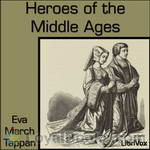 Heroes of the Middle Ages
Heroes of the Middle Ages
“The object of this book is to bring together stories of the most important movements in the history of Europe during the Middle Ages, and to make familiar the names of the most important figures in those scenes. I have endeavoured to weave a tapestry in which, with due colour, may be traced the history of the rise and fall of the various nationalities and the circumstances and mode of life of each—in short, to give the young reader an approximation to the background for the study of his country’s history which a wide reading gives to a man.” | |
By: Benvenuto Cellini ((1500-1571)) | |
|---|---|
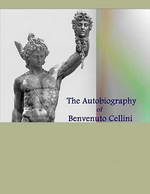 The Autobiography of Benvenuto Cellini
The Autobiography of Benvenuto Cellini
Cellini’s autobiographical memoirs, which he began writing in Florence in 1558, give a detailed account of his singular career, as well as his loves, hatreds, passions, and delights, written in an energetic, direct, and racy style. They show a great self-regard and self-assertion, sometimes running into extravagances which are impossible to credit. He even writes in a complacent way of how he contemplated his murders before carrying them out. He writes of his time in Paris: Parts of his tale recount... | |
By: William H. Hudson (1841-1922) | |
|---|---|
 Far Away and Long Ago
Far Away and Long Ago
William Henry Hudson (August 1841 – 1922) was an author, naturalist and ornithologist. Hudson was born of U.S. parents living in the Quilmes Partido in Buenos Aires Province, Argentina, where he spent his youth studying the local flora and fauna and observing both natural and human dramas on what was then a lawless frontier. ‘Far Away and Long Ago’ is a classic memoir of a boy, fascinated by nature, on the Pampas in the 19th century. | |
By: Noah Davis (b. 1804) | |
|---|---|
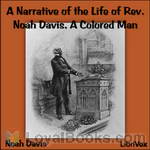 A Narrative of the Life of Rev. Noah Davis, A Colored Man
A Narrative of the Life of Rev. Noah Davis, A Colored Man
The object of the writer, in preparing this account of himself, is to RAISE SUFFICIENT MEANS TO FREE HIS LAST TWO CHILDREN FROM SLAVERY. Having already, within twelve years past, purchased himself, his wife, and five of his children, at a cost, altogether, of over four thousand dollars, he now earnestly desires a humane and Christian public to AID HIM IN THE SALE OF THIS BOOK, for the purpose of finishing the task in which he has so long and anxiously labored. God has blessed him in an extraordinary... | |
By: Lytton Strachey (1880-1932) | |
|---|---|
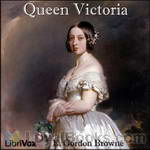 Queen Victoria
Queen Victoria
Lytton Strachey’s first great success, and his most famous achievement, was “Eminent Victorians” (1918), a collection of four short biographies of Victorian heroes. With a dry wit, he exposed the human failings of his subjects and what he saw as the hypocrisy at the centre of Victorian morality. This work was followed in the same style by “Queen Victoria” (1921). | |
By: Giles Lytton Strachey (1880-1932) | |
|---|---|
 Eminent Victorians
Eminent Victorians
On Modern Library's list of 100 Best Non-Fiction books, "Eminent Victorians" marked an epoch in the art of biography; it also helped to crack the old myths of high Victorianism and to usher in a new spirit by which chauvinism, hypocrisy and the stiff upper lip were debunked. In it, Strachey cleverly exposes the self-seeking ambitions of Cardinal Manning and the manipulative, neurotic Florence Nightingale; and in his essays on Dr Arnold and General Gordon, his quarries are not only his subjects but also the public-school system and the whole structure of nineteenth-century liberal values. | |
By: Amy Steedman | |
|---|---|
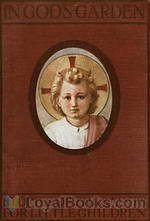 In God's Garden
In God's Garden
“In this book you will not find the stories of all God’s saints. I have gathered a few together, just as one gathers a little posy from a garden full of roses. But the stories I have chosen to tell are those that I hope children will love best to hear.” (excerpt from In God’s Garden by Amy Steedman) | |
 Knights of Art - Stories of the Italian Painters
Knights of Art - Stories of the Italian Painters
A children's version of the Lives of Artists by Vassari with many Illustrations. Of course we won't be able to show the paintings but the descriptions and the anecdotes are interesting and may lead a child to further interest. | |
By: Irwin Leslie Gordon (1888-1954) | |
|---|---|
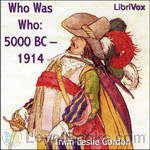 Who Was Who: 5000 BC – 1914
Who Was Who: 5000 BC – 1914
A short, humorous biography of famous people from 5000 BC to 1914. — S. McGaughey From the Introduction, “The editor begs leave to inform the public that only persons who can produce proper evidence of their demise will be admitted to Who Was Who. Press Agent notices or complimentary comments are absolutely excluded, and those offering to pay for the insertion of names will be prosecuted. As persons become eligible they will be included without solicitation, while the pages will be expurgated of others should good luck warrant.” | |
By: Mary A. Hamilton | |
|---|---|
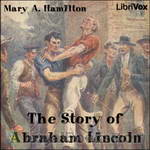 The Story of Abraham Lincoln
The Story of Abraham Lincoln
In this biography for young adults, Mary A. Hamilton gives a British person’s perspective on the 16th President of the United States. A glowing tribute to “Honest Abe”, the author traces Lincoln’s ancestral roots and recounts his birth in Kentucky, his youth in Indiana, his adult life in Illinois and his years in the White House. She also provides a good background on the causes and course of the American Civil War. Hamilton is not always historically precise. For example, she erroneously names Jefferson Davis as the Southern Democratic candidate for president running against Lincoln and Douglas in 1860 rather than John C... | |
By: Albert Bigelow Pain | |
|---|---|
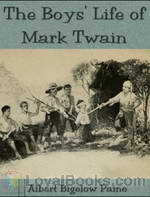 The Boys' Life of Mark Twain
The Boys' Life of Mark Twain
Albert Bigelow Paine was Samuel Langhorne Clemens’ (Mark Twain’s) biographer. He lived with Twain, collecting ideas and material for a biography, for a few years before Twain’s death in 1910. Six years later Paine published this “story of a man who made the world laugh and love him.” For those who have read or listened to Mark Twain’s works, Paine’s work is an invaluable resource to better understand Twain, the stories behind his stories and his life with those he loved and with whom he worked. | |